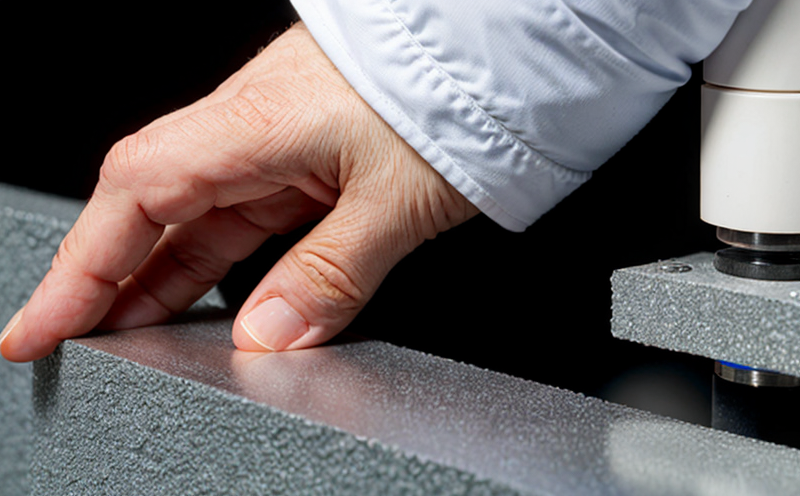Determining the critical stress intensity factor in notch-sensitive materials
Unlocking Material Resilience Determining the Critical Stress Intensity Factor in Notch-Sensitive Materials
In todays fast-paced industrial landscape, material reliability is crucial for ensuring the safe and efficient operation of products and systems. One critical aspect of material characterization is determining the critical stress intensity factor (KIC) in notch-sensitive materials. This laboratory service, offered by Eurolab, provides a comprehensive understanding of a materials resistance to crack propagation under tensile loading.
What is Determining the Critical Stress Intensity Factor in Notch-Sensitive Materials?
Determining the critical stress intensity factor (KIC) involves subjecting a notch-sensitive material to controlled tensile loads until catastrophic failure occurs. By analyzing the resulting fracture surface and load-displacement curves, researchers can determine the materials resistance to crack propagation. This information is invaluable for industries where structural integrity and safety are paramount.
Why is Determining the Critical Stress Intensity Factor in Notch-Sensitive Materials Essential?
In todays competitive market, businesses must prioritize product reliability and efficiency. By understanding a materials KIC value, manufacturers can
Improve design and development processes Accurate characterization of notch-sensitive materials enables designers to optimize product geometries, reducing the risk of brittle fracture.
Enhance material selection By knowing a materials KIC value, engineers can choose the most suitable materials for specific applications, minimizing the likelihood of catastrophic failure.
Optimize manufacturing processes Understanding the critical stress intensity factor helps manufacturers develop more efficient production methods, ensuring consistent product quality and reducing waste.
Meet regulatory requirements Compliance with industry standards, such as those set by ASTM or API, relies on accurate material characterization. Determining KIC values ensures that products meet regulatory demands.
Reduce costs associated with material failure By understanding a materials limitations, businesses can minimize the financial impact of material failure, which can be catastrophic in industries like aerospace and automotive.
Key Benefits of Using Eurolabs Laboratory Service
Our expert team at Eurolab offers a comprehensive laboratory service for determining KIC values. The benefits of working with us include
State-of-the-art equipment Our cutting-edge testing facilities ensure accurate and reliable results, giving you confidence in your material characterization.
Expert analysis Our team of experienced researchers provides thorough interpretation of test data, providing actionable insights to inform your product development.
Rapid turnaround times We understand the importance of timely decision-making. Our laboratory service ensures quick turnaround times, allowing you to accelerate your product development cycle.
Compliance with industry standards Eurolabs laboratory service is designed to meet or exceed industry standards, ensuring that your products meet regulatory demands.
QA Frequently Asked Questions about Determining the Critical Stress Intensity Factor in Notch-Sensitive Materials
Q What are notch-sensitive materials?
A Notch-sensitive materials are those prone to brittle fracture under tensile loading. These include metals like steel and aluminum, as well as certain polymers and ceramics.
Q How is the critical stress intensity factor determined?
A Our laboratory service involves subjecting a notch-sensitive material to controlled tensile loads until catastrophic failure occurs. We analyze the resulting fracture surface and load-displacement curves to determine the KIC value.
Q Why is KIC testing important for industries like aerospace and automotive?
A In these high-risk industries, understanding a materials resistance to crack propagation under tensile loading is crucial for ensuring product safety and reliability.
Q Can I use Eurolabs laboratory service for other types of materials?
A While our primary focus is on notch-sensitive materials, we also offer testing services for other materials. Please contact us to discuss your specific needs.
Conclusion
Determining the critical stress intensity factor in notch-sensitive materials is a critical component of material characterization. By understanding a materials resistance to crack propagation under tensile loading, businesses can improve design and development processes, enhance material selection, optimize manufacturing processes, meet regulatory requirements, and reduce costs associated with material failure. Eurolabs laboratory service offers state-of-the-art equipment, expert analysis, rapid turnaround times, and compliance with industry standards. Contact us today to unlock the full potential of your materials and ensure product reliability in a rapidly changing world.
Learn More About Our Laboratory Service
At Eurolab, we pride ourselves on delivering accurate and reliable results. To learn more about our laboratory service for determining KIC values, please visit our website or contact us directly. Together, lets unlock the full potential of your materials and drive innovation in your industry.




